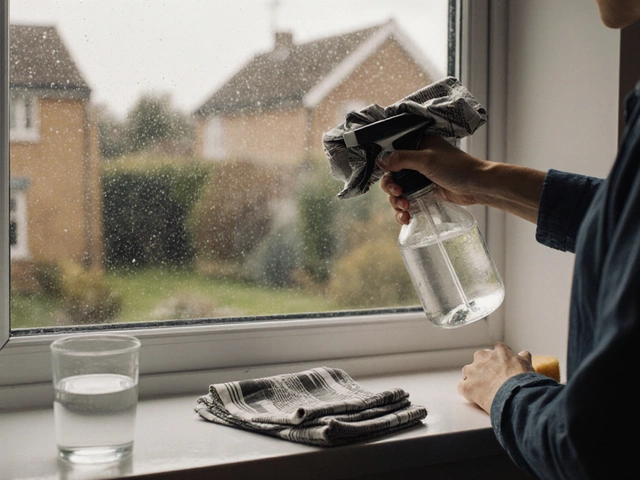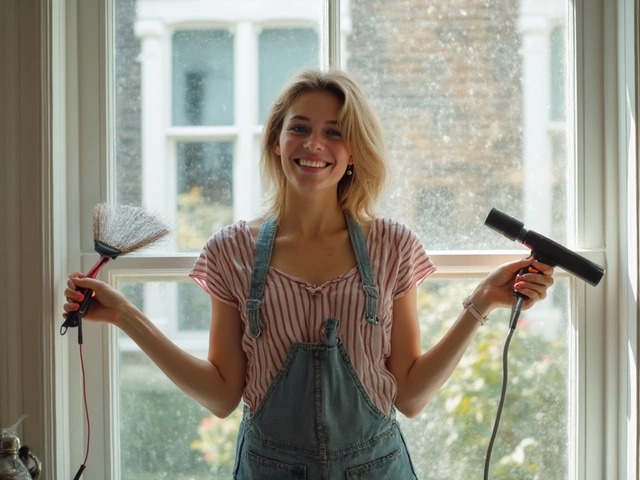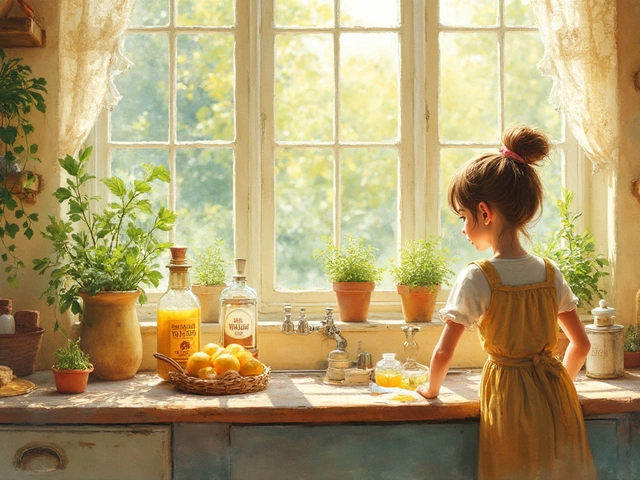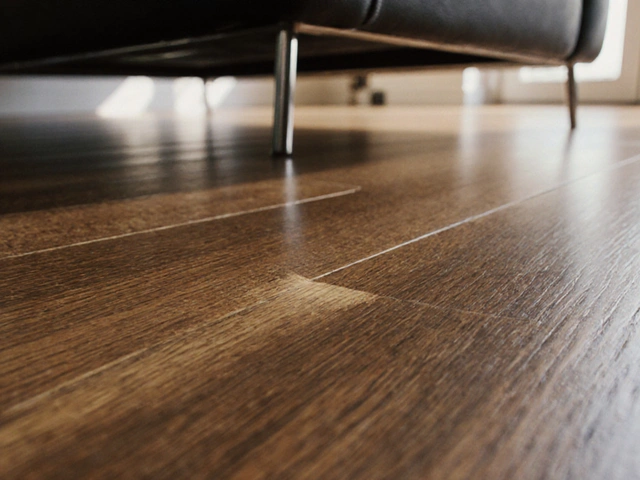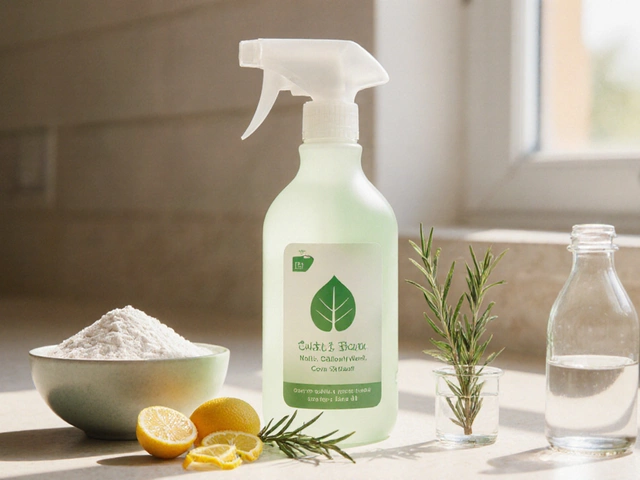You ever notice those chalky white marks clouding up your windows, no matter how hard you scrub? That’s hard water for you—packed with minerals, especially calcium and magnesium, that love to glue themselves to glass. Ordinary window sprays and a bit of elbow grease might fade the marks, but the stubborn residue is still staring you down. I’ve seen folks in Brighton try vinegar, baking soda, even magic erasers, but plenty end up getting frustrated and dialling in the pros. Not because the stains are invincible, but because professional window cleaners have some clever tricks, specialist gear, and a no-nonsense approach that beats out DIY any day.
Understanding Hard Water Stains and Why They Stick
Hard water stains are ruthless. If you live anywhere the tap water’s packed with minerals, your windows will pay the price—Brighton included. The worst offenders are those white, milky patches that show up after rain or frequent hosing. Here’s why it happens: every droplet carries dissolved minerals. When the water evaporates, those minerals harden into crusty, concrete-like scars on the glass. Leave them for weeks or months, and the sun bakes them in, making removal even tougher.
It’s not just about bad looks. Hard water stains etched into glass can permanently blur your view if ignored. Some research from the Glass Association of North America actually shows that long-term buildup changes the structure of window surfaces, leading to permanent hazing or pitting.
Homes near the sea (like mine) or close to ongoing construction are even more at risk, since salt and dust combine with mineral deposits, making the job a real headache. Now and then, a particularly unlucky homeowner might even start to lose natural light inside—windows look foggy, as though your walls are always in the shade.
These marks attract mildew and grime too. If the glass isn’t smooth anymore, it’s easier for everything else to latch on. So, what can professionals do about it, especially when homemade remedies have failed?
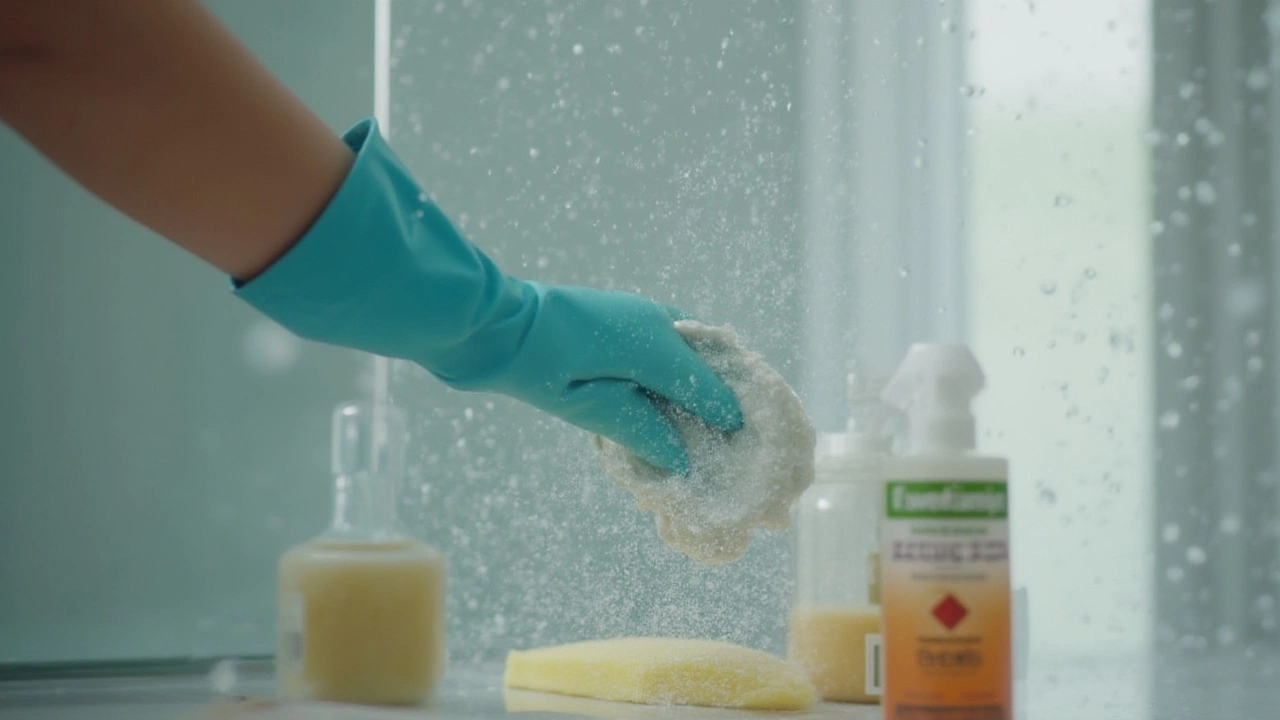
Pro-Level Tools, Cleaners, and Techniques for Hard Water Stain Removal
The biggest secret is that most professional window cleaners don’t use just one magic potion. They customize their approach based on the stain’s age, the window type, and location—ground floor or fifth-storey, single-pane or double-glazed. First off: forget regular blue window sprays. Those might make fingerprints vanish, but they barely touch mineral build-up.
What do professionals actually reach for? Here’s a breakdown that’ll put some science behind the shine:
- Chemical descalers: Like bio-safe acids (phosphoric or citric acid based) that zap minerals without wrecking glass or window seals.
- Commercial hard water stain removers: Think of brands like Unger RubOut, Titan Laboratories’ A-1 Hard Water Stain Remover, or Diamond Magic. These pack more punch than store-bought stuff, designed for commercial glass.
- Specialized glass-safe scrubbing pads: White, non-scratch pads won’t cut up the glass but provide enough grit to work alongside the chemical cleaner, lifting off stubborn mineral spots.
- Razor blade scrapers or glass-safe steel wool: Only the finest grade (0000) steel wool is used—never the kitchen stuff—and paired with lots of lubrication so you don’t scratch up your panes. A slip with the wrong tool, by the way, will leave permanent marks. That's why the pros are, well, pros.
- Pure water systems: You’ll spot these mounted in vans, pumping out deionized water. This stuff is so ultra-filtered it leaves zero spots or residue once it dries. Pros use water-fed poles (some reaching six storeys!), so no squeegee marks or tap water lines are left behind.
- Polishing compounds: Sometimes, if stains are ancient, they’ll use cerium oxide or similar compounds. It's almost like a gentle sanding process for glass.
- Protective coatings: Once cleaned, some pros will recommend (or even apply) a glass sealant—something like Rain-X or commercial versions from 3M—to help water bead and run off, meaning fewer stains in the future.
Application matters. Here’s a step-by-step of what a Brighton window cleaner might do if you called them for hard water stains:
- Assess the severity. A quick spray-and-wait test—if it beads, minerals are sitting on top. If it ‘sheets’ or runs off, things are more serious, maybe even permanent etching.
- Apply a dedicated hard water remover, letting it sit according to the product instructions, sometimes a few minutes, sometimes longer.
- Use a non-scratch pad or a razor at a perfect angle (never straight on), reapplying cleaner as needed until the marks fade.
- Rinse with pure deionized water, usually with water-fed pole systems, for a spotless finish.
- Inspect under good light (sometimes they’ll use a torch), finishing with a tiny bit of steel wool if needed. Pros have a gentle touch, so there’s less risk than DIY attempts.
- Suggest or apply a hydrophobic (water-repelling) treatment for future protection.
This is not guesswork; it's tested, with each step aimed at getting the glass close to its original clarity.
| Tool/Chemical | Strength | When Pros Use It |
|---|---|---|
| Phosphoric/Citric Acid Cleaners | Medium–High | Light–medium stains, all glass types (check for sensitive frames) |
| Diamond Magic | High | Heavier mineral/scaling, older stains, commercial glass |
| 0000 Steel Wool | Medium | Spot work, careful only on uncoated glass |
| Pure Water System | Finishing | All jobs for spotless drying, exterior glass (especially at height) |
| Glass Sealant (Rain-X, 3M) | Preventive | After main clean, on request or for homes near hard water risk areas |
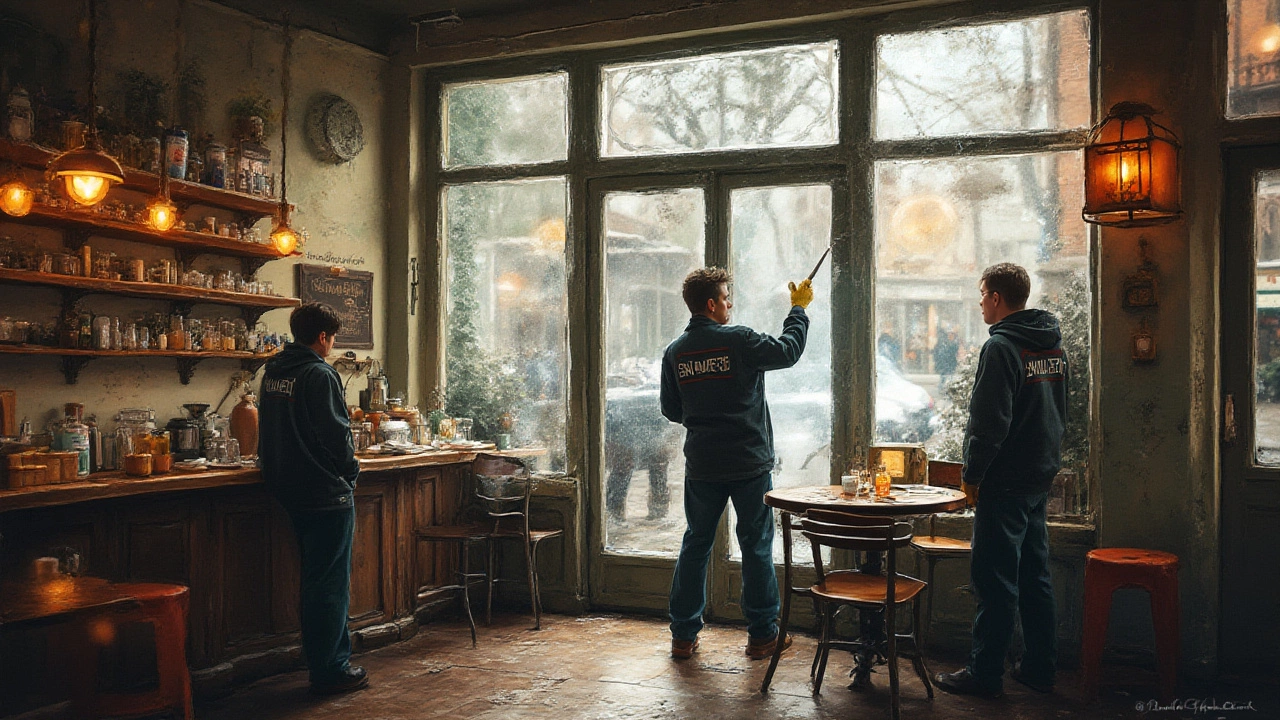
Tips from the Experts: Keeping Hard Water Stains Off Your Windows
Ever watched a league football match during a proper British rainstorm? The windows on the commentators’ box are crystal clear, even with water hammering them. There’s no secret magic; it’s about staying ahead of the problem, not just playing catch-up. Here are real tips—straight from professionals’ mouths—to keep hard water at bay:
- Wipe down windows after watering the garden or after it rains. Even a microfiber cloth will do—don’t let droplets air-dry.
- Check your sprinkler heads. Aim them at plants, not windows. This stops regular splashing, the number one cause of domestic hard water staining.
- If you’re tackling stains yourself, always start least aggressive—vinegar and water. But, if nothing shifts after two tries, don’t dig in with more abrasive tools. It’s easier to avoid scratches than to repair them.
- Hard water troubles in the shower? The same logic applies. Squeegee after each use, and consider using shower glass protectants.
- Install a water softener at the mains if you’re seeing stains all over the place—not just windows. It’ll help taps and showers too.
- If hiring professionals for your windows, ask what products they use and if they include a sealant in the price. Long-term, a treated window pays off by making cleaning easier and less frequent.
- Keep to a schedule! Pros in Brighton often recommend cleaning anywhere from monthly (for seafront properties) to quarterly (a bit further inland). The longer you leave stains, the more they bed in.
One quirky fact—a colleague told me that old Brighton boarding houses used to rub lemon slices on their windows after rinsing, to delay hard water stains. Acidic, natural, and pretty fragrant, if you ask me. Not as potent or practical as today’s methods, but a clever workaround when commercial cleaners weren’t common.
It’s tempting to grab whatever’s under the sink and have a wild go at stubborn marks, but patience and the right gear make the difference. When clean, protected glass reflects a sunset over the Channel, you’ll notice how even a plain room seems brighter. Every bit of effort counts. I tell Mara this every time she points to another spot I've missed (she’s got eagle eyes, I swear). Only now, I’ve got no excuse for streaky panes.
Get rid of hard water stains with confidence—use what the pros use and you might not need them next time. Still, a clean window really can change the whole vibe of your space, especially on those rare sunny days by the sea.
